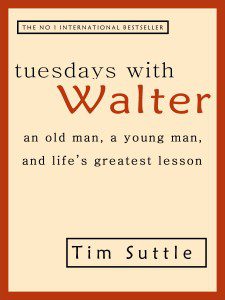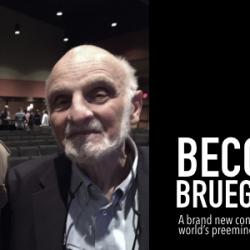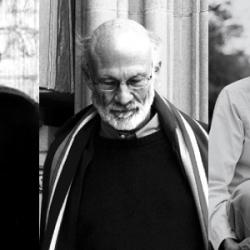 We have a strange habit on the staff of Redemption Church where I pastor. Instead of reading from leadership books, we read about theology and scripture, so we can be formed by a story and tradition untainted by contemporary church leadership paradigms. Right now we are reading Walter Brueggemann’s classic work The Prophetic Imagination. Walter Brueggemann is my favorite OT scholar, and his work is insanely helpful to the workaday pastor. For the next few weeks my Tuesday blog entry will deal with some aspect of Bruggemann’s work & what implications it holds for church leadership.
We have a strange habit on the staff of Redemption Church where I pastor. Instead of reading from leadership books, we read about theology and scripture, so we can be formed by a story and tradition untainted by contemporary church leadership paradigms. Right now we are reading Walter Brueggemann’s classic work The Prophetic Imagination. Walter Brueggemann is my favorite OT scholar, and his work is insanely helpful to the workaday pastor. For the next few weeks my Tuesday blog entry will deal with some aspect of Bruggemann’s work & what implications it holds for church leadership.
Chapter 01 – first half
Brueggemann begins where he always begins: reminding us that the consciousness of the church and her leaders is being held captive by our culture – a move he calls enculturation, which simply means that the dominant narrative for the church (her people & leaders), is not actually the Christian tradition as it should be, but rather it is the traditions of the culture. The church is more American than Christian.
The reason the church has become enculturated is that we have lost touch with the deep traditions of the faith. In The Prophetic Imagination, Brueggemann sets out to reintroduce the reader to the tradition of the prophets.
Without her traditions, the church has lost her memory, and suffers from chronic amnesia. We cannot remember how we are supposed to be different from the rest of the culture, so we are not different at all. With this loss of memory comes a loss of hope. With a loss of hope comes the loss of authority. These days, the culture holds much more authority over our lives than does the church tradition and our faith. If you don’t think this is true consider this: why do we raise our children to decide whether or not they want to be Christians, but we do not raise them to decide whether or not they want to be Americans? Nobody teaches their children that they have a choice about whether or not they want to be a part of this culture. American identity is not optional, but Christian identity is? This tells us that American identity is ultimate. Brueggemann seeks to subvert that idea, not just in regard to our culture of nationalism, but also with regard to our culture of consumerism and individualism.
The problem is this: the church has no tradition – no collective memory – powerful enough to counteract the powerful memory and traditions of the culture. We have no traditions, for instance to help us remember that we are not consumers first, we are Christians first; we are not Americans first, we are Christians first; we are not simply individuals who determine our own destiny, but we are part of a people which God has joined together through the Spirit of Christ – a people called the church – and our destiny and identity is not something we have chosen, but something that is received as a gift from God. Our lives are not our own, but they have been bought with a high price. Instead we buy the tradition of the culture: you can be anything you want to be when you grow up. The tradition of the church should tell us, you cannot be anything you want to be, you must learn how to hear the voice of God in your life and allow God to help you learn who he wants you to be. Then you must be that.
The task of the prophetic ministry is to crash the claims of the culture – consumerism, individualism, and nationalism – head on into the claims of the tradition and allow the tradition to subvert the claim the culture makes on our lives. This happens in two steps. 1) Criticize: the prophetic ministry calls into question not simply the crisis of the day, but the overarching enduring crisis that is the same from issue to issue. That enduring crisis is simply this: our consciousness is held captive to the world and not the gospel. 2) Energize: to imagine a different future of hope and begin to embody that hopeful reality in the life of the church.
Instead of critiquing and energizing as an alternative to the culture, the church has come to underwrite American culture. This is why the Christian right needs to tell the story of America such that we are a “Christian Nation,” because the evangelical church is far more American than Christian. Brueggemann says that if our consciousness would ever wake up to this reality (that we are in fact a part of the chosen people of God and not cultural prisoners), the church would become a great threat to the culture.
Leadership Reflections on Part 01
For Brueggemann, Moses is the paradigmatic prophet. He criticized the Pharaoh’s suppression of the people and energized them to act. For Christian ministry leaders, our ministries should take on a more prophetic character. The job of the prophetic church is to say, “The way the world is? The way of the culture? That way is passing! The future of God, the way the world should be has broken in through Jesus Christ and his kingdom is advancing both in the hearts of human beings, and in the structures of our world, and nothing can stop it. We’re joining in this new way of life – we don’t care what you threaten to do to us!”
Just as the children of Israel wandered in the wilderness for 40 years until everyone whose imagination had been shaped by slavery in Egypt had died, we must undergo our own wilderness experience. We have to shed the claim of control which the culture has upon our lives. This is incredibly hard work. When we undertake this mission, the culture will turn on us, and so will the church which is so highly invested in the success of the culture (see also Lamentations). Yet this is the task of prophetic leadership, and we must not shrink from it.












